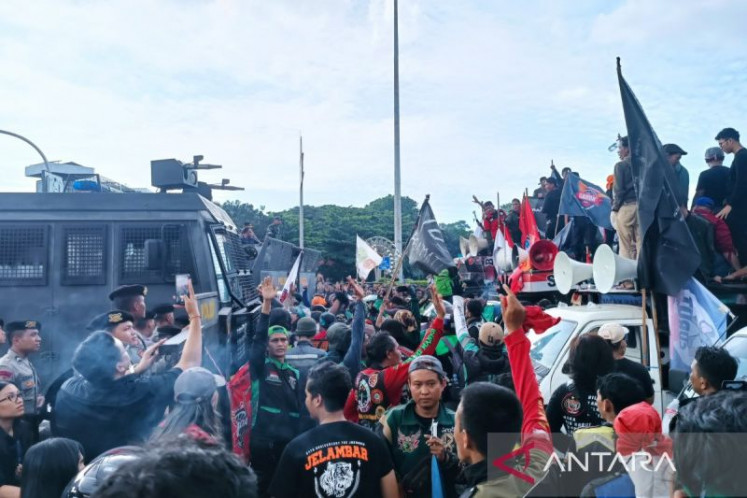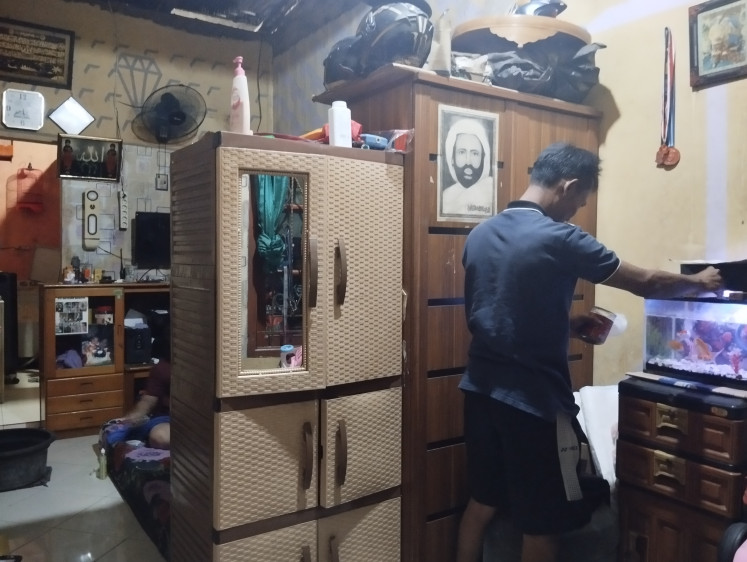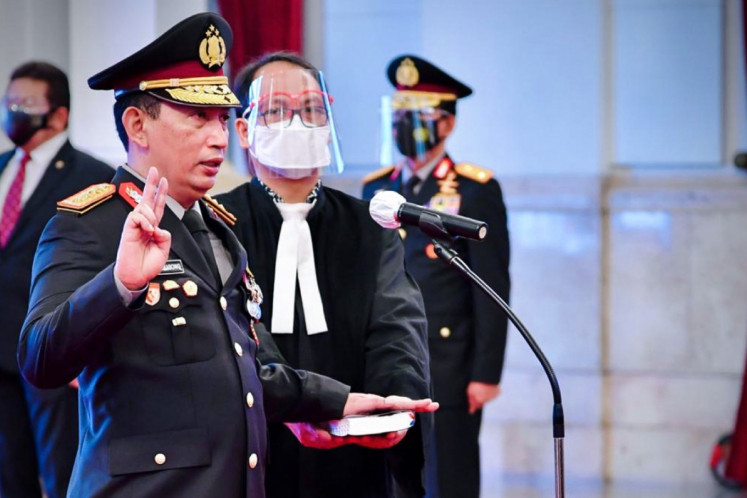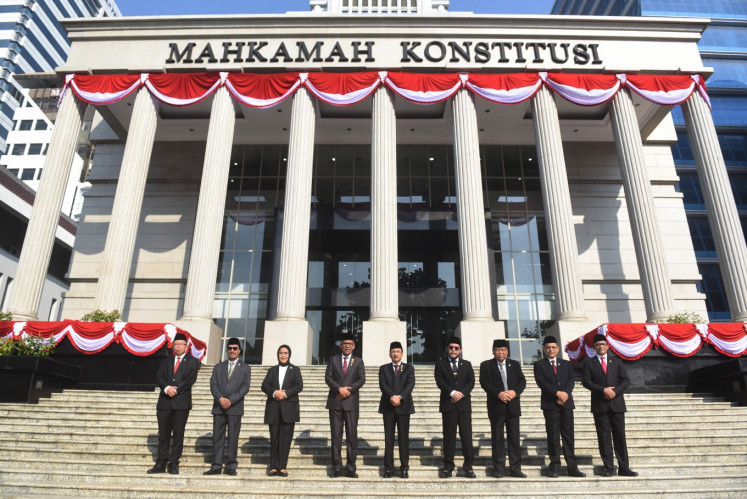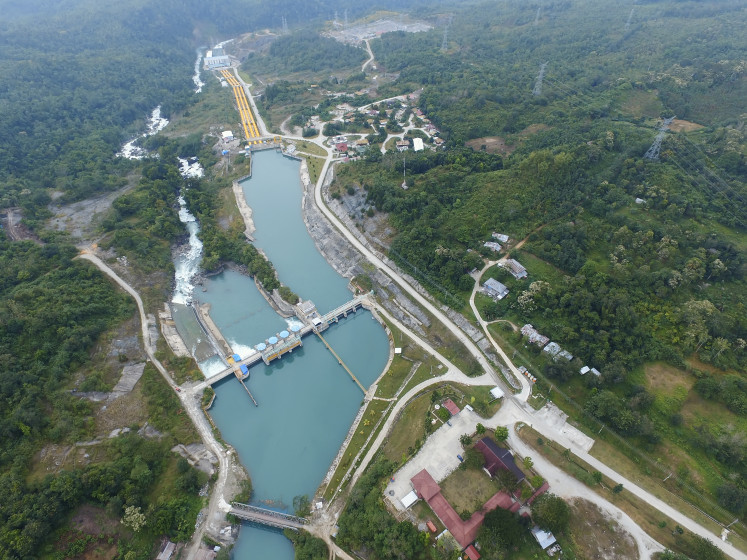Popular Reads
Top Results
Can't find what you're looking for?
View all search resultsPopular Reads
Top Results
Can't find what you're looking for?
View all search resultsIndia and Indonesia can set the course for inclusive growth in Asia
Indonesia and India share significant development experience in which both countries have managed huge diversity in terms of land, people, resources and cultures.
Change text size
Gift Premium Articles
to Anyone
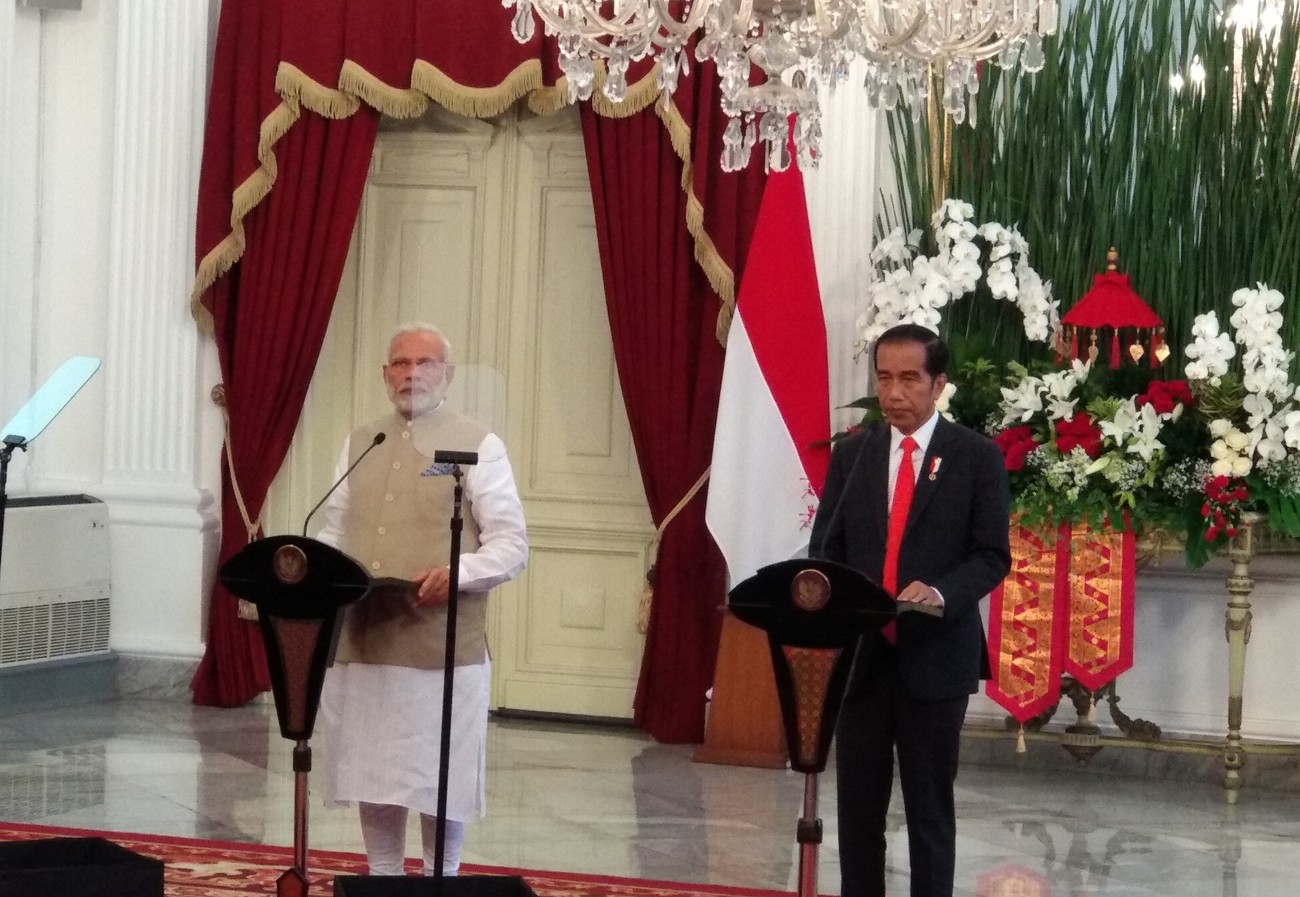 President Joko (JP/Anton Hermansyah)
President Joko (JP/Anton Hermansyah)
I
ndia and Indonesia are two important nations in Asia who define the strength of this region. Together, they can set the course for economic and strategic direction in Asia and beyond. India and Indonesia share historical and friendly relations. Both are peace-loving societies, governed simultaneously by ancient heritage and a modern outlook to development. And both societies are ruled by democratic principles.
For several years, Asia has been the backbone of global growth and prosperity, and the finest example of regional cooperation. Indonesia and India have played an important role in creating a social and harmonious East Asian community – not just within, but also in regional and global platforms.
Prime Minister of India Narendra Modi’s visit to Indonesia this week is an important opportunity for leaders of both countries to renew cooperation for the next decade of Indonesia-India relations. The way forward for Indonesia and India would be to merge their common strengths and set up a pathway that can deepen their relations and in the process, reinforce and expand regional growth, prosperity and harmony.
Geography and people are their greatest common strength. As the Indian Ocean is a major channel of global economic growth and prosperity, the geographic spread of the two neighbors can be harnessed for free and open movement of goods, services and people in the Indian Ocean. The two have special roles to play in the Indian Ocean Rim Association (IORA) too. The connectivity of the Asia-Pacific and Asia-Africa will be more efficient when India and Indonesia share a common vision and cooperation for trans-regional connectivity, whether physical, institutional or between people.
People of both countries have shared history and commerce over centuries. In matching the past with their economic future, the two countries offer a rich space for programs on economic growth and development.
Indonesia has redoubtable maritime strength and maritime connectivity between its islands can be very important for maritime connectivity in the Indian Ocean region as a whole. President Joko “Jokowi” Widodo has envisioned the poros maritim dunia (Global Maritime Axis Program) for inter-island connectivity, port infrastructure and maritime security. This fits favorably in the maritime connectivity component of India’s Act East Policy, where India is working on deepening its cooperation with ASEAN and East Asia. When Prime Minister Modi travels to Indonesia along the historical maritime route between the two countries, he would be giving a strong endorsement to President Jokowi’s call of Jalesveva Jayamah (in the ocean we triumph) to Indonesia.
India-Indonesia trade relations have been healthy in recent years. Among the ASEAN countries, Indonesia is the largest trading partner of India. In 2017, Indonesia accounted for 23.63 percent of India’s total trade in goods with ASEAN. There is huge scope for India to expand its exports to Indonesia, and indeed to all of ASEAN.
The ASEAN-India Free Trade Agreement (AIFTA) was signed in 2009 and it expanded the trade in goods between India and ASEAN, with the balance of trade remaining favorable to ASEAN. The ASEAN-India Trade in Services Agreement, however, requires greater utilization among ASEAN countries. As one of the largest markets in ASEAN, Indonesia can play a greater role in trade in services with India.
India and Indonesia are the two leading economies in the Regional Comprehensive Economic Partnership (RCEP) negotiations, and can work together for an early conclusion of the negotiations in 2018. Indonesia is the chair representing ASEAN in the RCEP negotiations and India must support Indonesia’s efforts for concluding RCEP negotiations in this year.
India-Indonesia bilateral relations must also rise to global challenges where the multilateral system of trade governance and cooperation is under stress. Rising support for trade restrictiveness is compounded by hardening borders against the movement of people. In a scenario where globalization and its benefits are being questioned, global governance and multilateral systems are also under strain. This would be detrimental for large developing countries like India and Indonesia, and not the least for smaller and economically vulnerable ones in ASEAN and Asia.
Both India and Indonesia must lead the voice of these developing countries in multilateral bodies such as the WTO and inter-governmental platforms such as the G20. The leaders of the two countries can reinforce multilateralism by creating a common policy position that addressed the concerns of developing and least developed countries of Asia.
Indonesia and India share significant development experience in which both countries have managed huge diversity in terms of land, people, resources and cultures to put in place a unique Asian model of development, where the government, private sector and civil society have together contributed in raising the development curve and making growth sustainable.
As global concerns veer around inclusive growth and sustainable development, India and Indonesia should harness their common strengths and development experience and set the pathway for prosperity and stability for Asia. Frictionless bilateral relations are increasingly rare. India and Indonesia share a rare and coveted friendship. With the support of right policy choices, the two have unlimited possibilities to strengthen mutual prosperity, and to lead regional and global mechanisms for an inclusive, open and rules-based global community.
The writer is the director general of the policy design department in the Economic Research Institute for ASEAN and East Asia (ERIA) in Jakarta. The views expressed here are personal and do not reflect ERIA’s position)
This article appeared on The Statesman newspaper website, which is a member of Asia News Network and a media partner of The Jakarta Post




